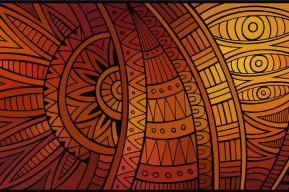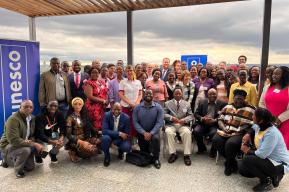News
The Syrian Hour: UNESCO utilizes radio to enhance access to information and freedom of expression for Syrian refugees in Jordan

On February 24, 2014, the third season of the UNESCO “Sa’a Suriya” radio programme will be launched. The radio programme is part of the UNESCO project “Sa’a Suriya: Enhancing access to information and freedom of expression for Syrian refugees in Jordan through radio programs”. Implemented in cooperation with Un Ponte Per (NGO) and funded by the Government of Japan, the programme provides information to the Syrian refugee community in urban areas in the northern and central parts of Jordan, including services provided by different organizations and local institutions with a special focus on services for women and youth. The programmes also provide counseling and psychosocial support through a pool of experts.
Considering the high number of vulnerable Syrian women and youth in Jordan with limited access to information, the absence of a communication platform for these groups and the lack of proper and constant information dissemination procedures about humanitarian services in Jordan, UNESCO office in Amman...
On February 24, 2014, the third season of the UNESCO “Sa’a Suriya” radio programme will be launched. The radio programme is part of the UNESCO project “Sa’a Suriya: Enhancing access to information and freedom of expression for Syrian refugees in Jordan through radio programs”. Implemented in cooperation with Un Ponte Per (NGO) and funded by the Government of Japan, the programme provides information to the Syrian refugee community in urban areas in the northern and central parts of Jordan, including services provided by different organizations and local institutions with a special focus on services for women and youth. The programmes also provide counseling and psychosocial support through a pool of experts.
Considering the high number of vulnerable Syrian women and youth in Jordan with limited access to information, the absence of a communication platform for these groups and the lack of proper and constant information dissemination procedures about humanitarian services in Jordan, UNESCO office in Amman will extend its previous action targeting Syrian refugees in urban settings. Through funding for a one year extension, UNESCO managed to extend the programme in outreach and length, and therefore reaching more beneficiaries. Next to the Yarmouk FM that covers Irbid and Mafraq governorates in the North, also Farah al Nas in Amman will broadcast the bi-weekly radio programme with a reach of Amman and Zarqa governorates in central Jordan.
Each episode of the programme will cover a different topic among a variety of priorities such as Education, Health, Legal, Psychosocial, Labor, Water, and Food. Experts on the topics will be hosted during the episodes, and Syrian refugees in host communities participate through reportages and phone-calls on air.
On February 12, the first phase of training was held at Yarmouk University as part of the project. The training focused on radio broadcasting techniques and targeted Jordanian youth who will be tasked with the preparation of reportages for each episode. The involvement of Jordanian youth and their interaction with the Syrian refugees will further promote mutual understanding between both communities and expose the participants to the Syrian refugees’ situation through working in the field.
Another phase of training will be held at Farah Al Nas for a new group of youth, followed by a specialized training on humanized media coverage for both groups combined.
Odai Gharaibeh, one of the Jordanian reporters for Sa’a Suriya trained during the second season, shared his experience saying that this program not only enriched his skills but he also gained more comprehension to the situation as a whole, besides the opportunity to be involved in a strong humanitarian cause.
The major aspired outcome of the project is to give voice to the Syrian refugee community in Jordan by providing them with a platform where they can freely access information and express their problems. It gives those who are isolated and feel helpless and limited the opportunity to engage actively, thus they are better able to participate the relief operations of their concern. Moreover, the program has a great role to help refugees in their daily life through access to the most essential services.
The project was first launched in November 2012 within the Irbid and Mafraq area through funding from Sweden over a period of three months. However, as the project proved very much needed by humanitarian service providers as well as by the beneficiaries, UNFPA provided funding for a three months extension. During that period, UNESCO was able to get approval for the one year extension highlighted above.









